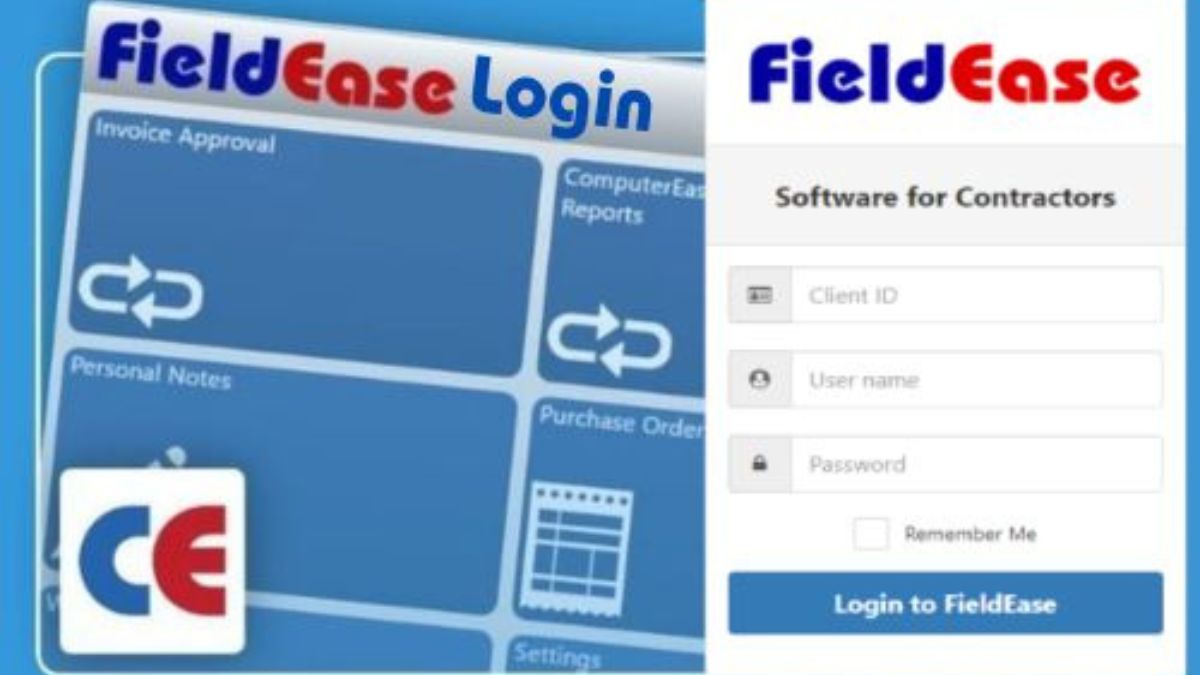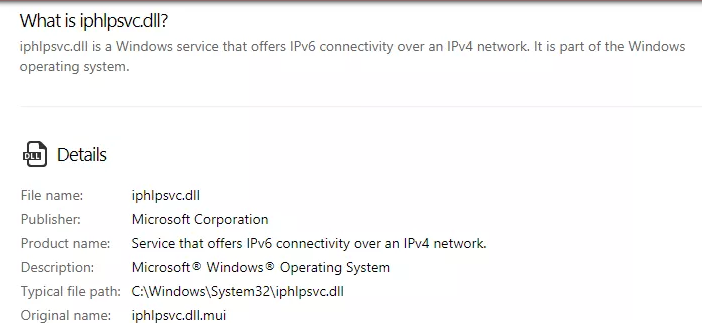Marketing
Data Center Proxies for Market Research

The days when businesses have to collect data manually are long gone. It wouldn’t be wrong to say that almost all companies in our fast-paced world had gone online. As a result of this shift, competition has become brutal.
Data Center Proxies: Proxy Servers Defined
Today, a majority of web traffic is non-human. This shows how bots are often used to gain a competitive edge to access more data. For productive market research, you have to use proxies. Many businesses today use proxies to collect extensive data quantities within just a short time.
A proxy is an intermediary server between the internet and your device. When using a proxy server, your requests will go through the proxy, it will change your device’s IP address, before connecting to the destination page on the internet. When accessing the internet via the proxy, the server will process every request you send – the server then will handle the request on behalf of your device. Once the proxy has collected the response from the destination site, it will pass it back to your device. This way, your original IP address isn’t exposed, and you get a high level of anonymity.
Proxy Types
Data Center Proxies
So, what are data center proxies? If you would like to learn more about data center proxies – this blog article from Oxylabs is just for you.
Data center proxies are the most common proxy types available. These proxies help a user to mask their IP address – they are independent of both the Internet Service Provider (ISP) and an internet connection. These servers are associated with the data center or corporation offering the proxy. Therefore, by using data center proxies, you can conceal your online identity.
Residential Proxies

Residential proxies usually have an IP address connected to a real location. These proxy types can never be banned because they can be traced to an actual home address and ISP. They also provide a high level of anonymity every time you browse the internet.
What Are Data Center Proxies: Data Center Proxies for Market Research
Data collection, especially for purposes of market research, has become the norm. You have no reason not to participate in this intelligence game. You can carry out market research in different ways, but the most effective way is to use a data extraction tool together with the right proxies. How then can you use proxies for market research?
With the availability of data extraction tools and proxies, market research has taken a new turn. Data collection for purposes of market research can be challenging, especially if the targeted websites have secured their sites against IP addresses originating from corporates and their competitors. Proxies come in handy to assist and make it easy. Proxies will hide your business’ IP address. This way, your requests will be executed via valid IP addresses.
With the use of proxies, you can also research your target audience via social media. A good number of social media users share their likes, interests, opinions, hobbies, etc. Once you have obtained this data, you can use it to launch a strategy that will perfectly fit your target audience. You can also target customer reviews, identify the gaps and mistakes, and adjust according to the needs of the consumers.
Choose The Right Proxies for Market Research
What proxies can do in terms of data collection is unmatched. Note: you have to get the right and secure proxies for your scraping needs. Look out for the right provider, and you can rest assured that your data collection will be hassle-free.
Marketing
fieldease login

Are you looking for information on fieldease login? You have come to the right place! In this blog post, we will provide a step-by-step guide on fieldease login
FieldEase – Deltek + ComputerEase
FieldEase | Deltek
Fieldease Login official website
Login.fieldease.com – Deltek + ComputerEase – Easy Counter
Fieldease Login – Web Archive
Fieldease Login – LoginsLink
FieldEase – Deltek + ComputerE… – Login Field Ease – Sur.ly
Login Fieldease Com
Field Ease Login – Suggestion Question
Fieldease Login – Login pages Info
Employee Hub
FieldEase 2.0 Setup. The first step to begin using … – DocPlayer.net
How I Login to FieldEase with Simple Steps? – All Result BD
Fieldease Login – EnewResult
fieldease.com Traffic Analytics, Ranking Stats & Tech Stack
Marketing
Cinema8.com: Revolutionizing Video Marketing with Interactive Experiences

With the ever-changing nature of the internet, video marketing has emerged as a crucial method for brands to reach their target demographics. Traditional video material, on the other hand, generally fails to interest viewers and make an impression. Here’s where Cinema8.com steps in as a game-changer by providing something new and exciting in the realm of video production and promotion.
The Features of Cinema8.com
Interactive Video Creation
Cinema8.com facilitates the production of interactive videos, in which the audience is actively encouraged to make choices and participate in the action. Audiences are engaged from the beginning of the video thanks to the interactive narrative.
Multiple Video Formats Supported
The platform is compatible with several video codecs, allowing users to stream videos from any device or web browser. Cinema8.com easily supports a wide variety of interactive video formats, including 360-degree videos, AR material, and VR content.
Customizable Player
The video player on Cinema8.com may be easily customized to fit the style of any given company. This maintains brand identification and guarantees a smooth viewing experience from beginning to end.
Analytics and Insights
The platform offers in-depth data and insights on audience activity, participation, and engagement. With the help of this data-driven strategy, organizations can improve the efficiency and effectiveness of their video marketing campaigns.
How Cinema8.com is Revolutionizing Video Marketing
Cinema8.com’s Impact on the Future of Interactive Video Marketing
Cinema8.com’s interactive features allow brands to tell tales that leave a lasting impression on consumers. Brands may build more meaningful interactions with consumers by putting them at the center of the story.
Enhanced User Interaction
Quizzes, surveys, and clickable hotspots are just a few examples of the interactive features available to Cinema8.com visitors. Students are more likely to pay attention and remember what they learn when they are actively engaged in the material.
Boosting Conversions
Conversion rates have been demonstrated to rise dramatically with the use of interactive videos on Cinema8.com. Businesses may motivate customers to take some sort of action, like making a purchase, signing up for a service, or subscribing to a newsletter, by taking them on an interactive journey.
Targeted Marketing
Businesses may efficiently segment and target certain audiences with the help of the data-driven insights provided by Cinema8.com. Making videos that cater to specific demographics increases their usefulness and viewership.
The Benefits of Using Cinema8.com for Businesses
Increased Brand Awareness
Cinema8.com raises brand exposure and recognition by providing engaging content in a congested digital landscape.
Improved Customer Engagement
Customers will feel more heard and appreciated because to the interactive nature of these movies. This deeper involvement strengthens the bonds between brands and their consumers.
Higher ROI
Cinema8.com’s interactive films boost marketing campaigns’ click-through rates, conversion rates, and return on investment (ROI) since they are so interesting to watch.
Real-World Examples of Successful Cinema8.com Campaigns
Company A: A Journey through History
Company A, a museum with a focus on the past, built an interactive exhibition using Cinema8.com. Users may pick from various time periods and significant points in history, interacting with historical characters and objects as they went.
Company B: Interactive Product Launch
E-commerce powerhouse Company B used Cinema8.com to interactively introduce a new product range. Users might virtually try on things and get suggestions according to their tastes. Pre-orders and social media shares went through the roof after the launch’s interactive component.
Company C: Immersive Virtual Tour
Travel agency Company C uses Cinema8.com to provide an interactive online journey to well-known tourist spots. Through 360-degree movies, spectators might virtually visit famous tourist destinations. The campaign did more than just get people thinking about traveling; it actually increased bookings.
Step-by-Step Guide to Getting Started with Cinema8.com
Sign Up and Account Setup
Creating a unique profile starts with filling in the necessary fields.
Creating Your First Interactive Video
Decide which quizzes, surveys, and clickable buttons you want to include to keep your readers interested.
Utilizing Analytics to Enhance Performance
Cinema8.com provides an analytics dashboard where you can keep tabs on how well your interactive videos are doing.
Comparison with Other Video Marketing Platforms
Cinema8.com vs. Traditional Video Platforms
The linear nature of video playback on more conventional platforms reduces opportunities for audience participation. On the other hand, Cinema8.com’s interactive videos completely change the way people watch and engage with videos online.
Cinema8.com vs. Interactive Video Competitors
While there are other interactive video platforms out there, Cinema8.com stands out due to its intuitive design, wide range of supported formats, and deep dive statistics. It’s a one-stop shop for companies who want to make engaging interactive videos.
Conclusion
Cinema8.com has broken new ground in the world of online video advertising by revolutionizing the way in which companies communicate with their target customers. Cinema8.com enables companies to create meaningful relationships with customers via interactive storytelling and immersive experiences. Businesses may take use of video marketing’s full potential and raise their brands to new heights by using this cutting-edge platform.
Marketing
Interactive Video: Engaging Your Audience Like Never Before

Unleashing the Power of Interactive Video
Are you trying to find innovative approaches to capturing the attention of your target market? Perhaps the answer you’re looking for might be found in the form of an interactive video. The interesting world of interactive video will be explored in this essay, along with its definition, advantages, and potential uses. Come along as we investigate the ways in which this cutting-edge technology might enhance the effectiveness of your content.
What is Interactive Video?
Dynamic and interactive, interactive video encourages audience participation. Rather than just watching a film and then moving on, viewers of interactive videos can actively participate in shaping the story and its conclusion. As a result of being given such agency, viewers are given a unique and memorable experience.
The Magic of Interactive Video Marketing
The use of interactive video in marketing is changing the way businesses communicate with their target demographic. Brands can successfully spread their message and keep their audience interested and engaged by providing an engaging and immersive experience. Let’s look at some LSI keywords to figure out why interactive films are revolutionizing advertising:
Enhanced User Engagement: Users are more likely to watch the entire film and remember the brand if they are actively involved in the experience.
Personalized Content: Customized for each individual user, personalized content increases engagement, which in turn boosts sales.
Data Insights: Marketers may improve the efficacy of their efforts by analyzing the data obtained from interactive videos and acting accordingly
Storytelling with Impact: Interactive storytelling enables brands to communicate complex narratives in a compelling and memorable manner.
Boosting Conversions: Brands can make difficult stories more engaging and memorable via the use of interactive storytelling techniques.
Applications of Interactive Videos
Interactive movies may be used for a wide range of purposes and in many different fields. Let’s have a look at some of the most significant applications of interactive video:
E-Learning and Educational Content
The introduction of these dynamic movies has revolutionized the e-learning industry. Students are better able to retain and comprehend information when they are actively engaged in the learning process.
Immersive Product Demonstrations
Companies may stand out from the competition by using interactive movies to advertise their wares. The video allows users to click on several alternatives to learn more about the product and how to buy it.
Interactive Webinars and Virtual Events
Participation, questions, and input from viewers make webinars and online conferences more engaging.
Gamified Marketing Campaigns
The use of gasification in marketing initiatives, especially through interactive movies, improves the user experience, increases engagement, and creates a positive emotional response.
Creating Interactive Videos: Best Practices
With this newfound appreciation for the potential of interactive video, let’s delve into some tried-and-true methods for developing engaging interactive pieces:
Define Your Objectives: Outline Your Goals and Objectives for the Interactive Video Make sure your marketing approach is in line with your goals and objectives for the interactive video by clearly outlining them.
Choose the Right Platform: Select the Appropriate Medium Choose an interactive video platform that meets your requirements and is simple to use.
Keep it Simple: Don’t complicate things by giving users too many options; instead, concentrate on making everything as easy as possible to use.
Storytelling Matters: The ability to create a compelling story is crucial for keeping readers interested in what you have to say.
Utilize Data Insights: Data analysis may help you make your interactive films better for your audience.
Mobile Optimization: In order to expand your audience, you should optimize your interactive films for mobile use.
Promote and Share: Publicize your interactive videos by posting them online and sending out emails.
FAQs about Interactive Video
What makes interactive video different from traditional video?
In contrast to passive viewing of typical videos, viewers of interactive videos get to take an active role by making decisions and shaping the story’s trajectory.
Are interactive videos only for large businesses?
Contrary to popular belief, businesses of every size may benefit from using interactive films. They provide a fresh and interesting approach to communicating with customers, no matter how big or little the business.
Do interactive videos work on all devices?
Most systems guarantee cross-device compatibility, so consumers may view material without any interruptions regardless of the device they’re using.
How can I measure the success of my interactive video campaigns?
Metrics like user engagement, play through rates, and conversion information are all readily available from videos, allowing for precise evaluation of the campaign’s efficacy.
Conclusion:
Elevating Your Content with Interactive Video
The advent of interactive films has revolutionized the content and advertising industries. Businesses and artists may connect with their audience more deeply if they provide a unique and interesting experience. Interactive video has the ability to engage viewers and impart knowledge and motivation in ways that were previously impossible.
-

 Marketing1 year ago
Marketing1 year agoHow Often Should You Publish on a Blog?
-

 Technology1 year ago
Technology1 year agoHow AI Can Transform Healthcare
-

 Technology1 year ago
Technology1 year agoIPHLPSVC Services Tuning? Windows 7/10
-

 REVIEWS1 year ago
REVIEWS1 year agoBest Gaming Communities Like F95zone
-

 OUTDOOR1 year ago
OUTDOOR1 year agoColoring Black and White Photo at Home
-

 Technology1 year ago
Technology1 year ago5 Best React JS UI Frameworks for Swift Prototyping
-

 REVIEWS1 year ago
REVIEWS1 year agoAll You Need to Know About KissAnime – Is it Safe and Legal?
-

 Business1 year ago
Business1 year agoInside Versus Outside Sales
